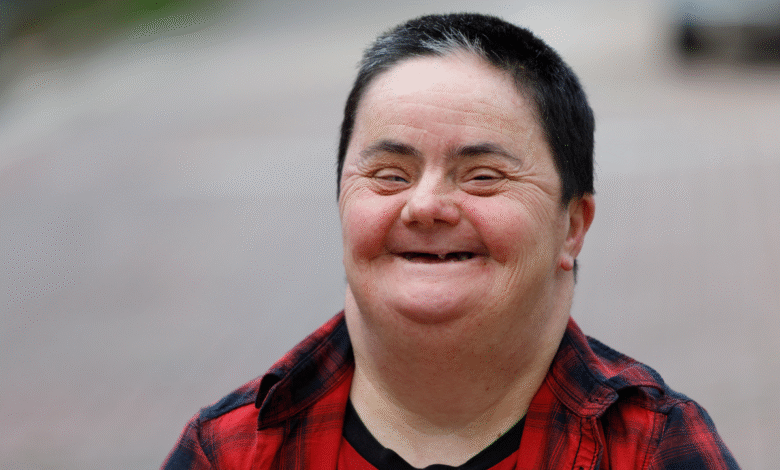Marfan Syndrome क्या है? जानिए इसके कारण, लक्षण और इलाज

मार्फन सिंड्रोम क्या है?
- मार्फन सिंड्रोम एक आनुवंशिक बीमारी है जो शरीर के संयोजी ऊतकों को प्रभावित करती है।
- इसमें हड्डियाँ, जोड़, दिल, आँखें और अन्य अंग कमजोर हो जाते हैं,
- जिससे शरीर की बनावट और कार्य प्रभावित होता है।
- यह बीमारी जन्मजात होती है और लंबे समय तक शरीर को प्रभावित करती रहती है।
मार्फन सिंड्रोम का कारण क्या होता है?
- इसका कारण शरीर में फाइब्रिलिन-1 नामक प्रोटीन बनाने वाले जीन में बदलाव (म्यूटेशन) होता है।
- यह प्रोटीन शरीर के संयोजी ऊतकों को मजबूत करता है।
- जब यह ठीक से नहीं बनता तो ऊतक कमजोर हो जाते हैं और बीमारी होती है।
मार्फन सिंड्रोम के मुख्य लक्षण क्या हैं?
- शरीर का लंबा और पतला होना
- उंगलियाँ और पैर की हड्डियाँ असामान्य रूप से लंबी होना
- जोड़ों का अधिक लचीला होना
- छाती की असामान्य आकृति
- आँखों में लेंस की जगह बदल जाना
- दिल की धमनी और वाल्व की कमजोरी
मार्फन सिंड्रोम किस उम्र में दिखता है?
यह बीमारी जन्म से ही होती है, लेकिन इसके लक्षण बचपन या किशोरावस्था में अधिक स्पष्ट रूप से दिखने लगते हैं। कुछ मामलों में यह वयस्क अवस्था तक बिना पहचान के भी रह सकता है।
मार्फन सिंड्रोम का निदान कैसे किया जाता है?
डॉक्टर शारीरिक जांच, पारिवारिक इतिहास, आँखों की जांच, दिल की जांच (ईकोकार्डियोग्राफी) और जीन टेस्ट के जरिए निदान करते हैं।
क्या मार्फन सिंड्रोम का इलाज संभव है?
फिलहाल मार्फन सिंड्रोम को पूरी तरह ठीक नहीं किया जा सकता, लेकिन इसके लक्षणों का इलाज संभव है। दवाइयाँ, सर्जरी, और नियमित देखभाल से मरीज की जीवन गुणवत्ता बढ़ाई जा सकती है।
मार्फन सिंड्रोम में दिल की क्या समस्याएँ होती हैं?
दिल की मुख्य धमनी (आर्टेरिया) कमजोर हो जाती है और फैल सकती है, जिससे फटने का खतरा रहता है। दिल के वाल्व भी ठीक से काम नहीं करते, जिससे दिल की बीमारी हो सकती है।
क्या मार्फन सिंड्रोम का असर मनुष्य की लंबाई पर पड़ता है?
हाँ, इस बीमारी वाले लोग सामान्य से बहुत लंबे और पतले होते हैं। उनकी उंगलियाँ भी लम्बी और पतली होती हैं, जिससे उनका शरीर अलग दिखता है।
मार्फन सिंड्रोम के मरीजों को क्या सावधानियाँ बरतनी चाहिए?
मरीजों को भारी व्यायाम और तनाव से बचना चाहिए, साफ-सफाई का ध्यान रखना चाहिए, नियमित जांच करानी चाहिए, और डॉक्टर की सलाह के अनुसार दवाइयाँ लेनी चाहिए।
मार्फन सिंड्रोम से पीड़ित व्यक्ति सामान्य जीवन जी सकता है?
हाँ, अगर समय पर इलाज और देखभाल हो तो मरीज सामान्य और स्वस्थ जीवन जी सकता है। परिवार और समाज का समर्थन भी बहुत जरूरी है।
मार्फन सिंड्रोम में फेफड़ों को कैसे नुकसान होता है?
मार्फन सिंड्रोम में फेफड़ों के संयोजी ऊतक कमजोर हो जाते हैं, जिससे फेफड़ों में हवा का रिसाव (Pneumothorax) हो सकता है। इससे अचानक सांस लेने में दिक्कत होती है और फेफड़ों का आकार प्रभावित होता है।
क्या मार्फन सिंड्रोम के कारण आँखों में समस्या होती है?
हाँ, मार्फन सिंड्रोम में लेंस डिसलोकेशन (आँख के लेंस का स्थान बदल जाना) आम है। इससे दृष्टि कमजोर हो सकती है और मरीज को चश्मा या सर्जरी की जरूरत पड़ सकती है।
मार्फन सिंड्रोम के मरीजों में हड्डियों की समस्या क्या होती है?
मरीजों की हड्डियाँ लंबी और पतली होती हैं। जोड़ अधिक लचीले होते हैं, जिससे मोच या चोट लगने का खतरा बढ़ जाता है। रीढ़ की हड्डी में झुकाव (Scoliosis) भी हो सकता है।
मार्फन सिंड्रोम की जाँच के लिए कौन-कौन से डॉक्टर से मिलना चाहिए?
- इस बीमारी के निदान और इलाज के लिए कार्डियोलॉजिस्ट (दिल का डॉक्टर),
- नेत्र रोग विशेषज्ञ (आँखों का डॉक्टर), ऑर्थोपेडिक (हड्डी और जोड़ों के डॉक्टर), और जेनेटिक काउंसलर से मिलना जरूरी होता है।
मार्फन सिंड्रोम वाले बच्चों के लिए क्या खास देखभाल करनी चाहिए?
बच्चों को भारी खेल-कूद से बचाना चाहिए। समय-समय पर डॉक्टर से जांच कराते रहना चाहिए। पोषणयुक्त आहार और मानसिक समर्थन देना बहुत जरूरी है ताकि वे स्वस्थ और खुश रहें।





